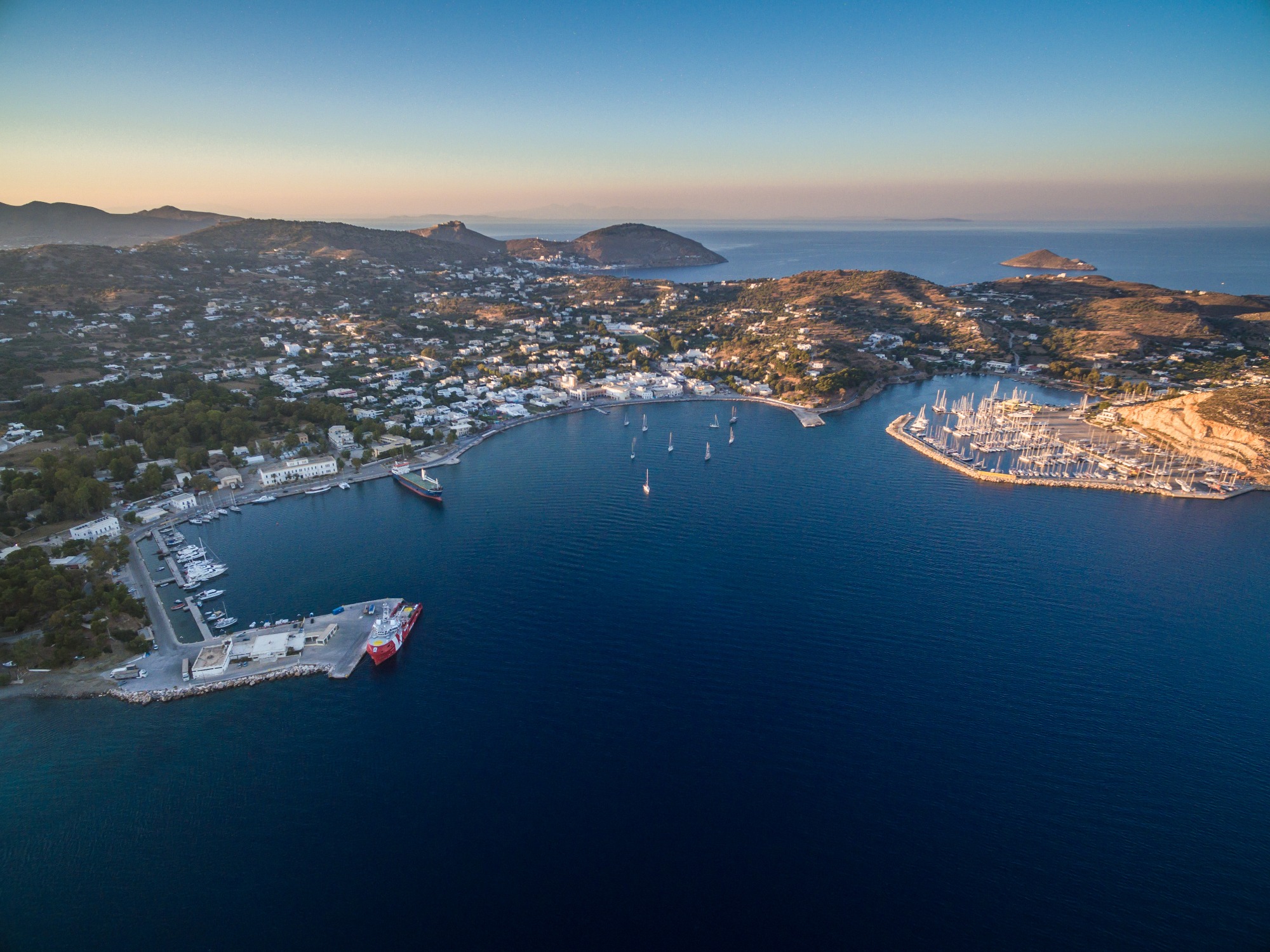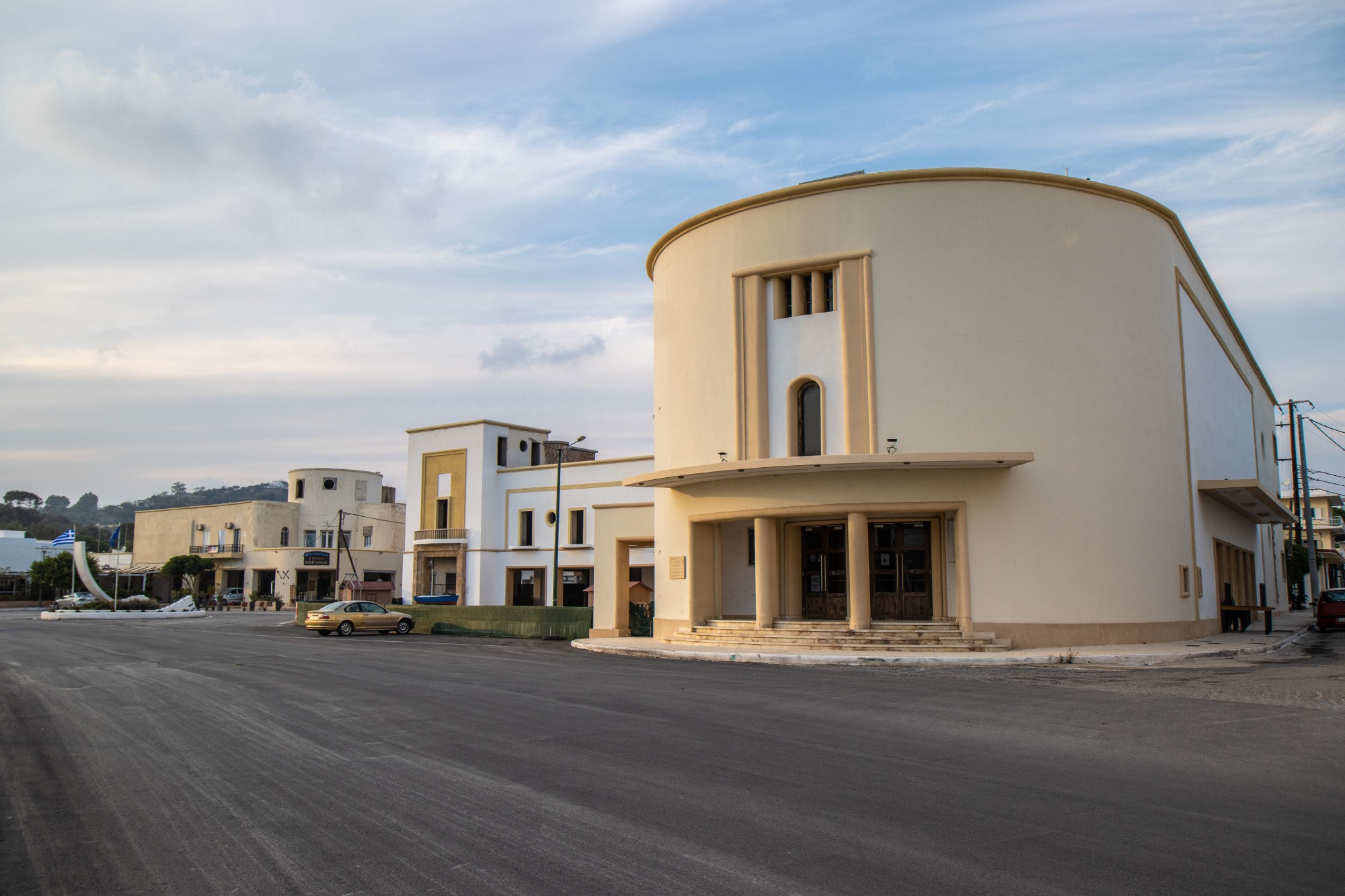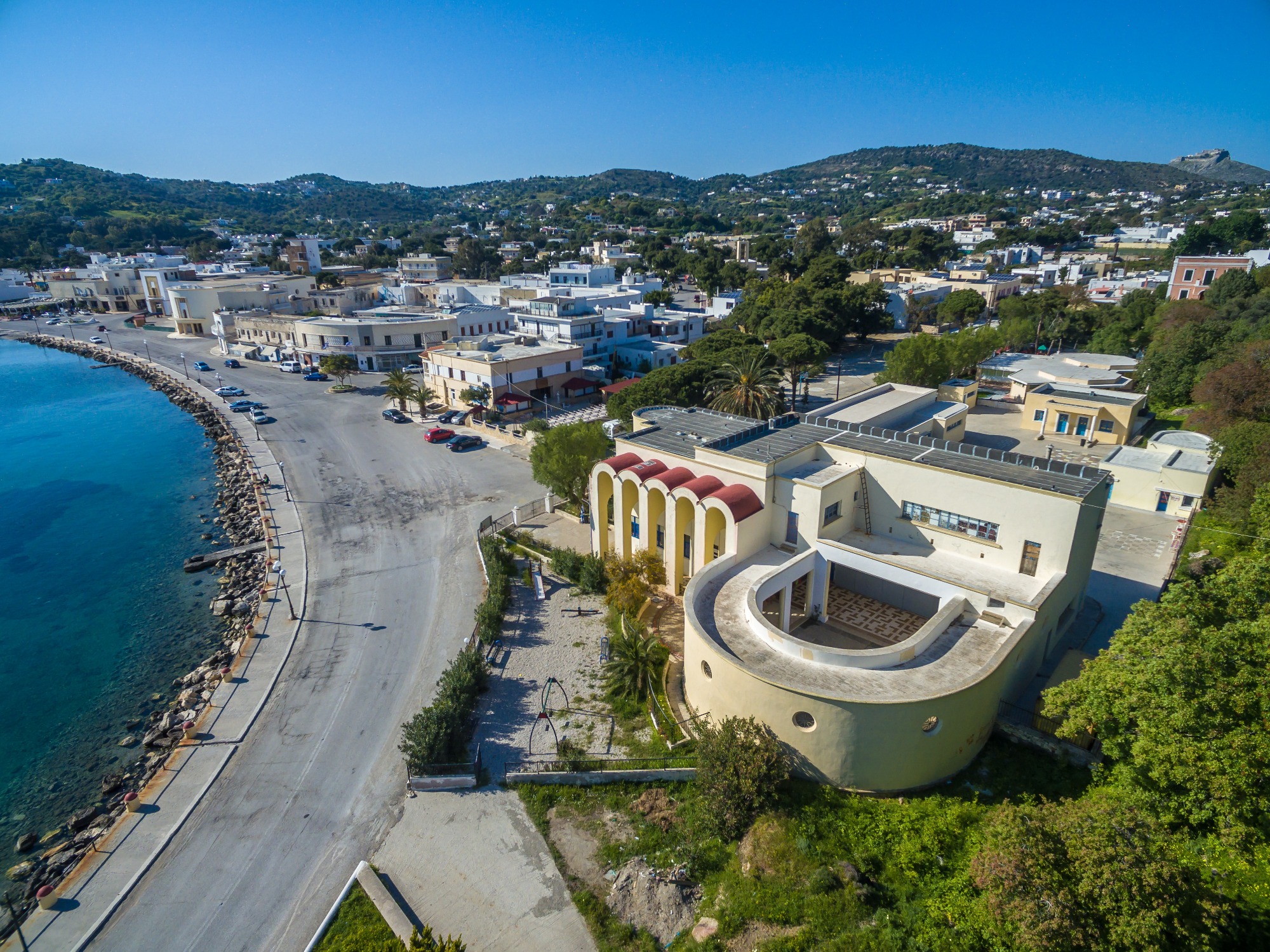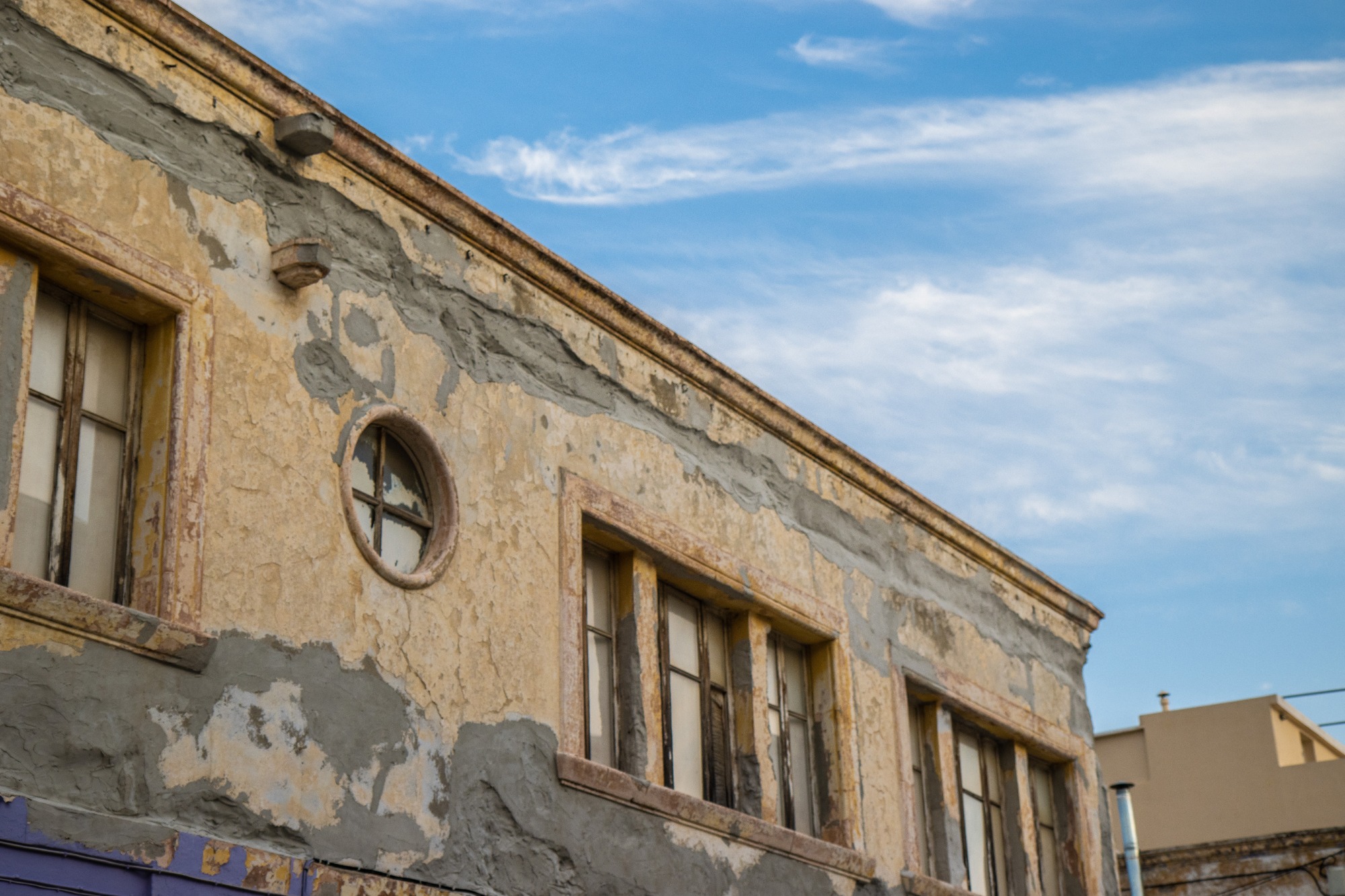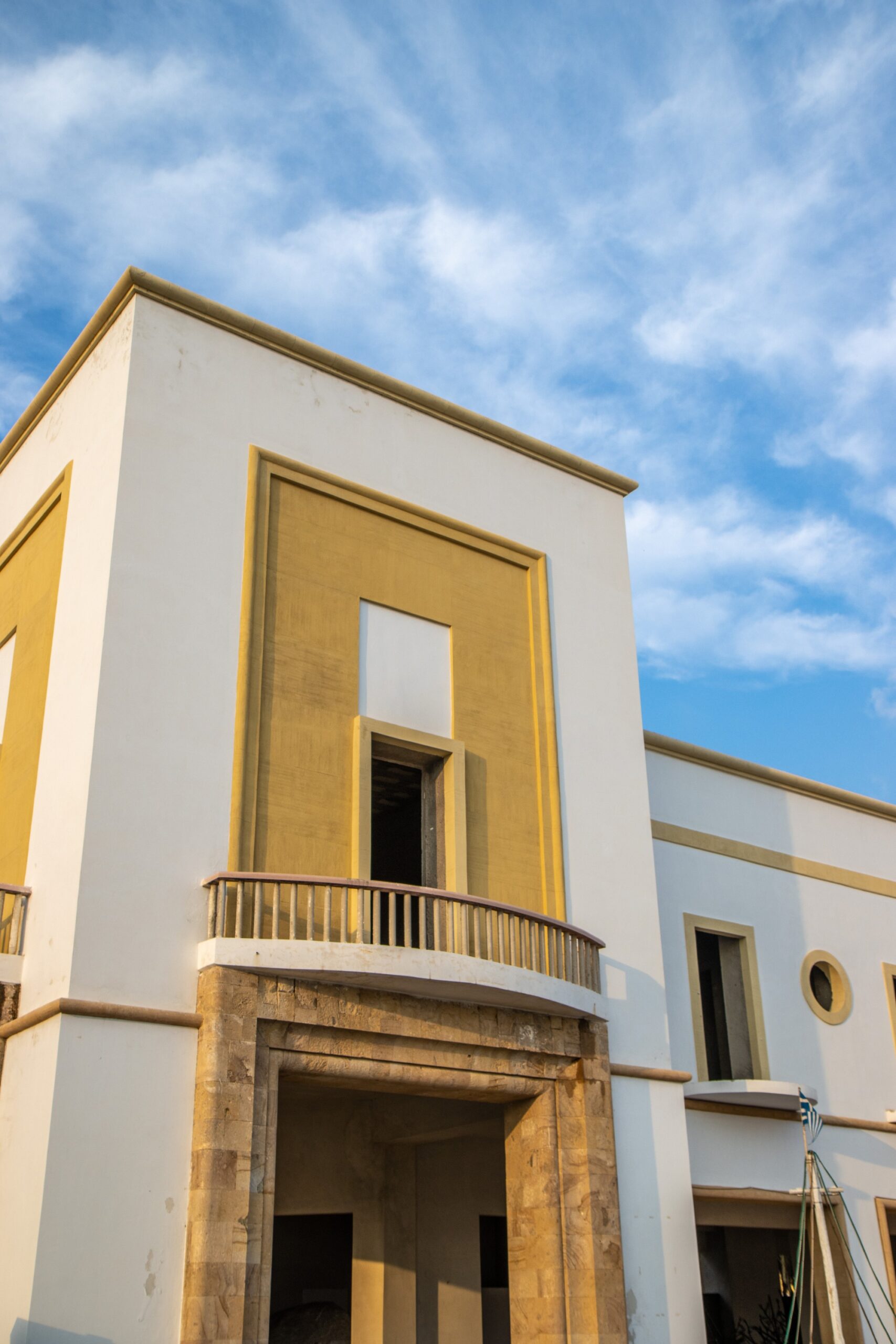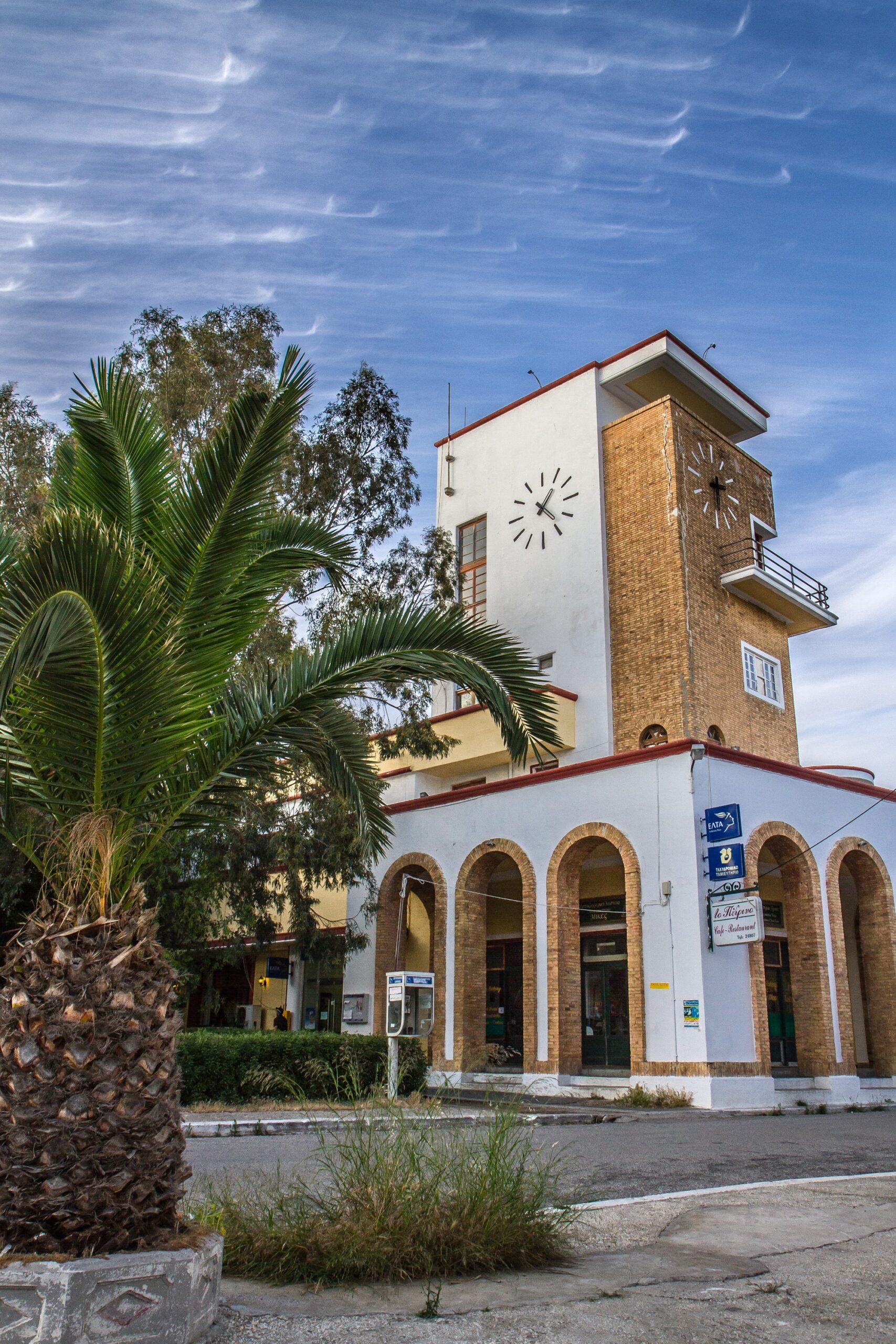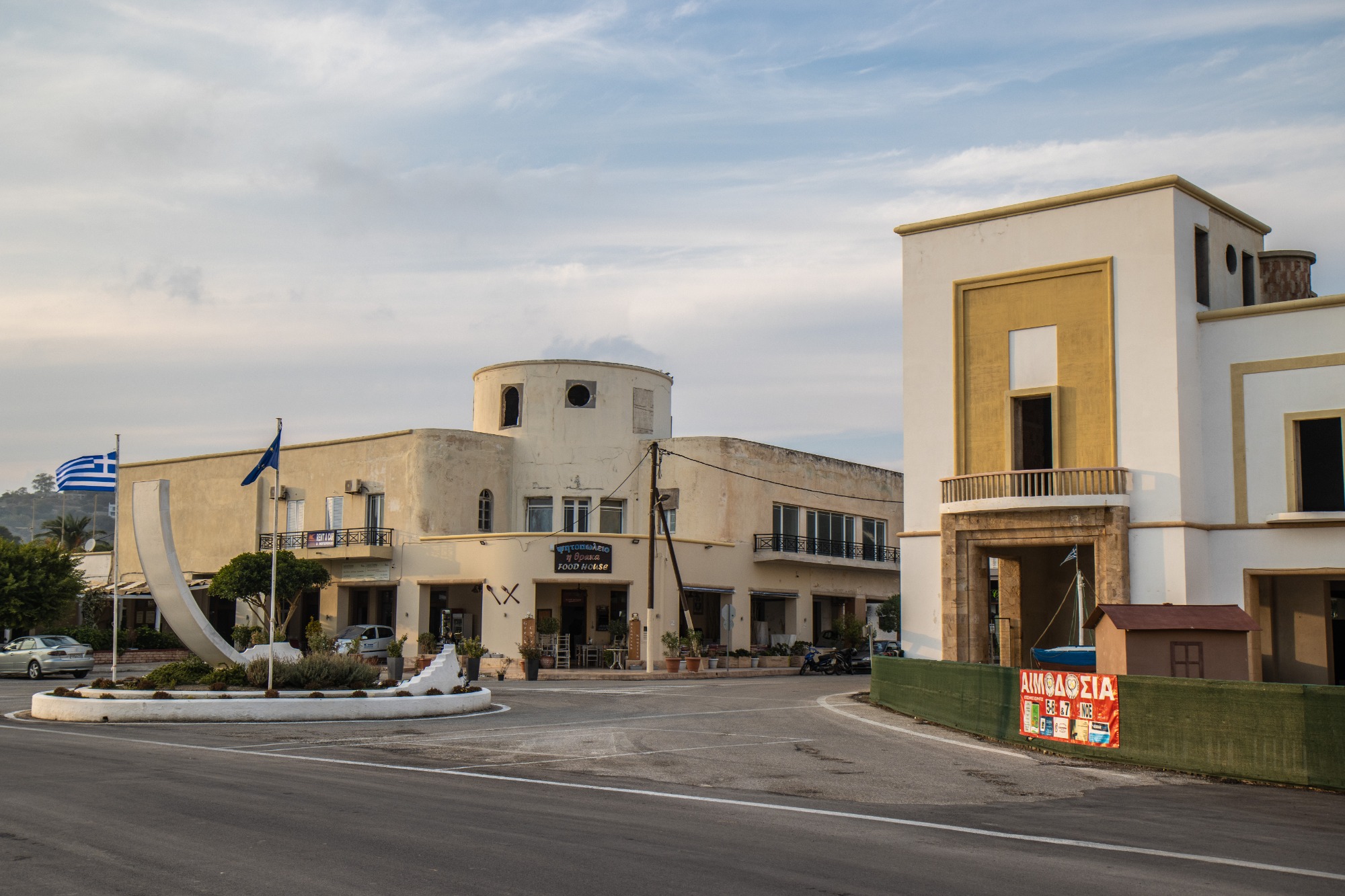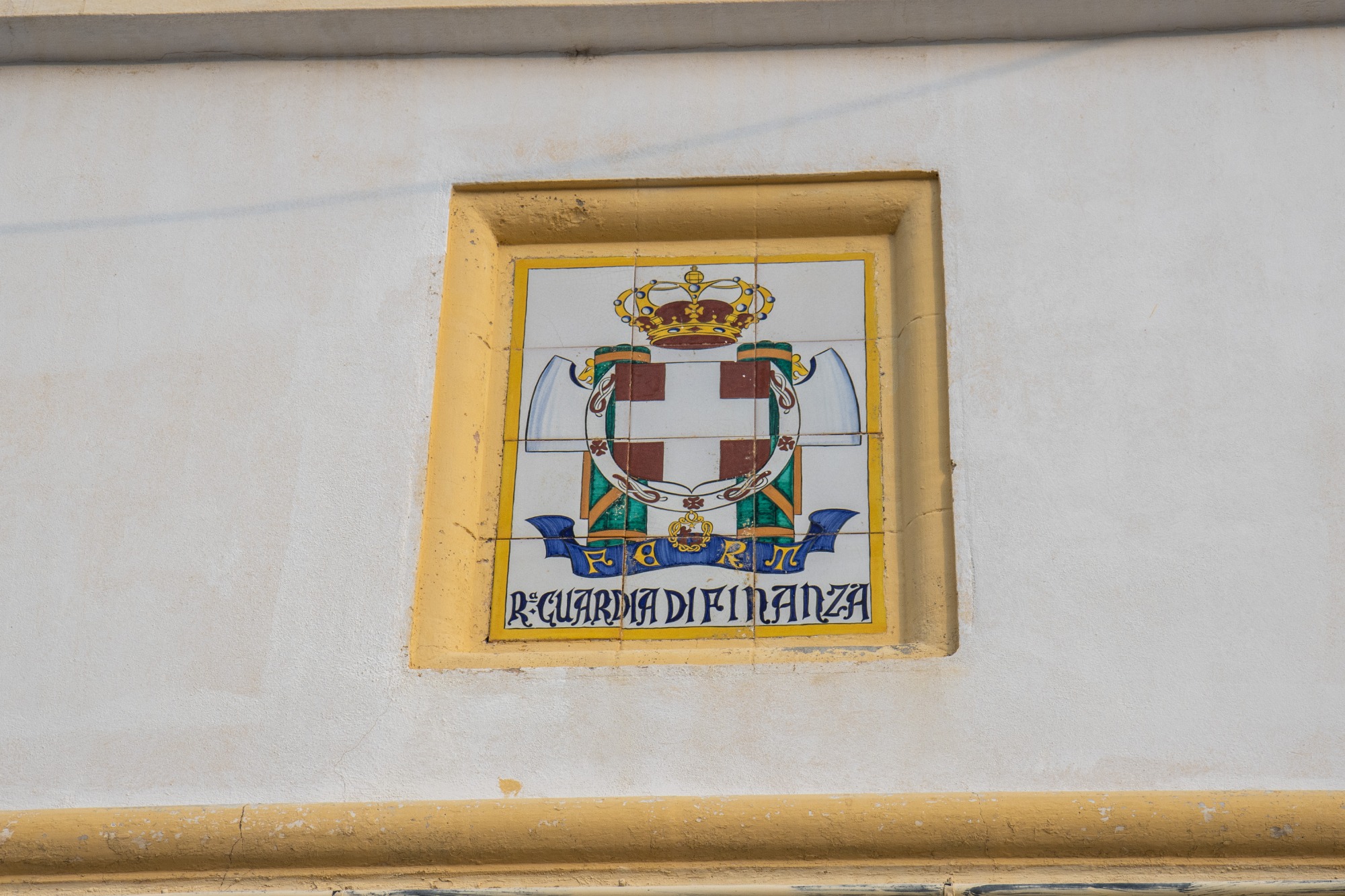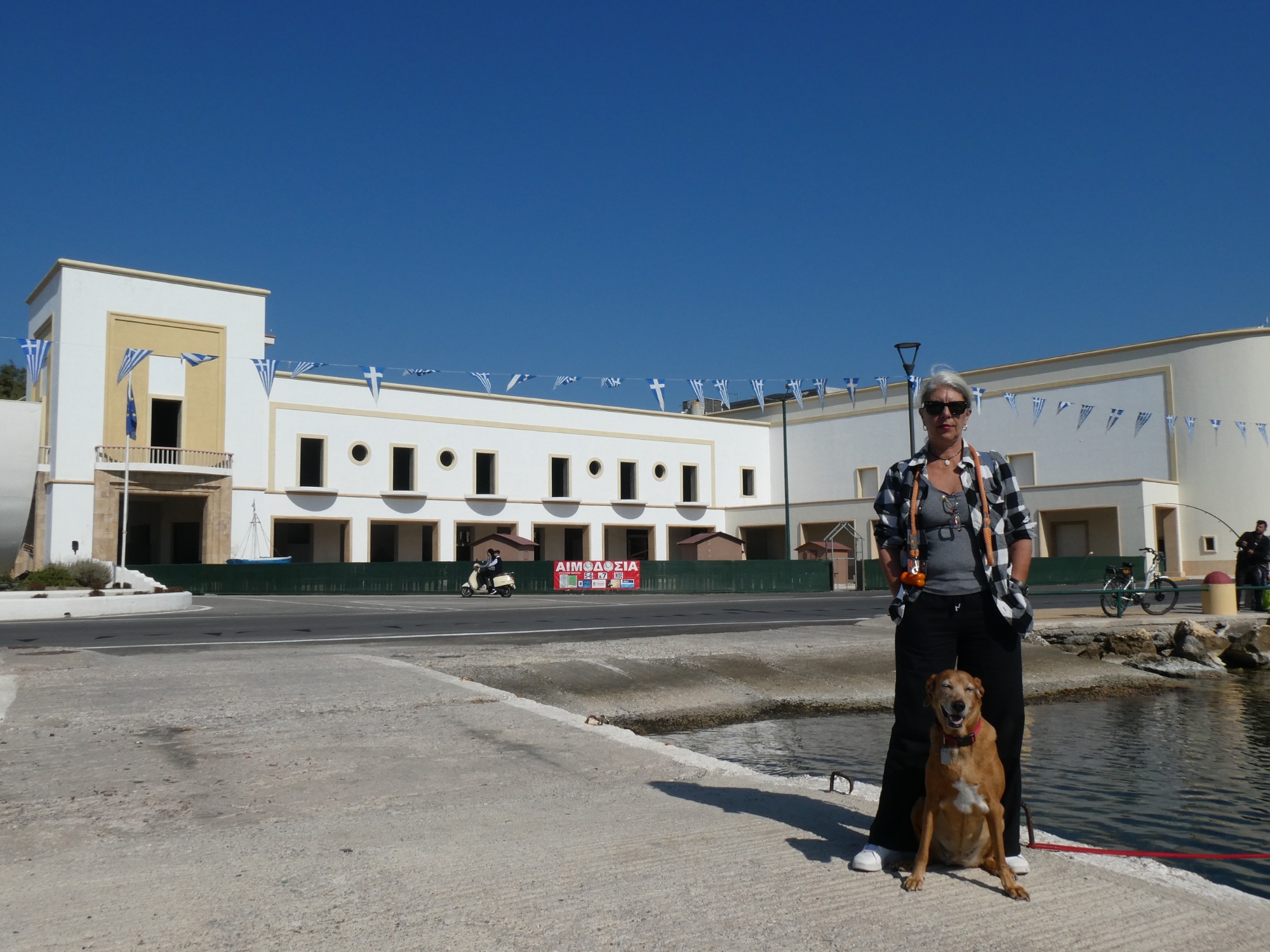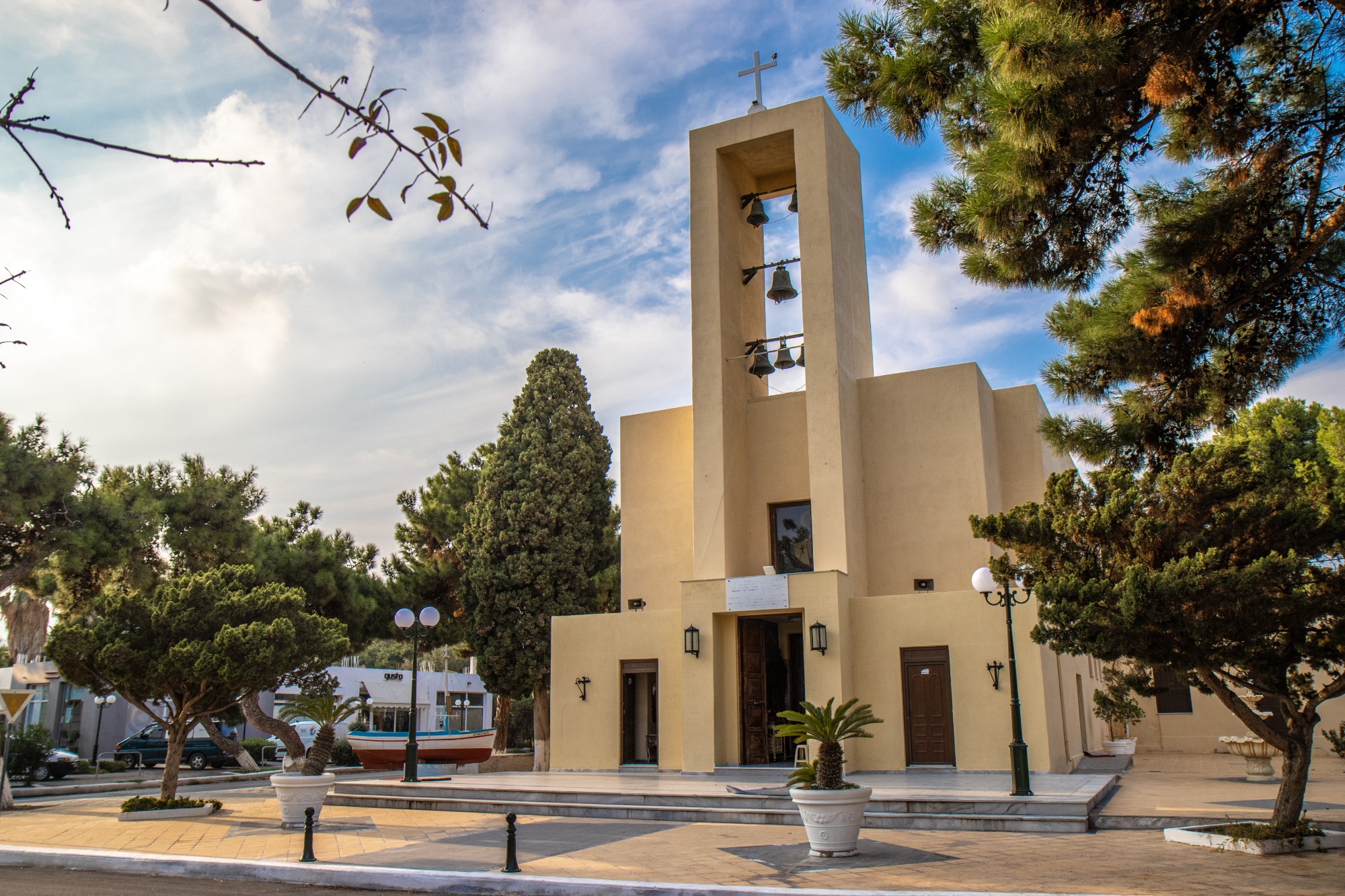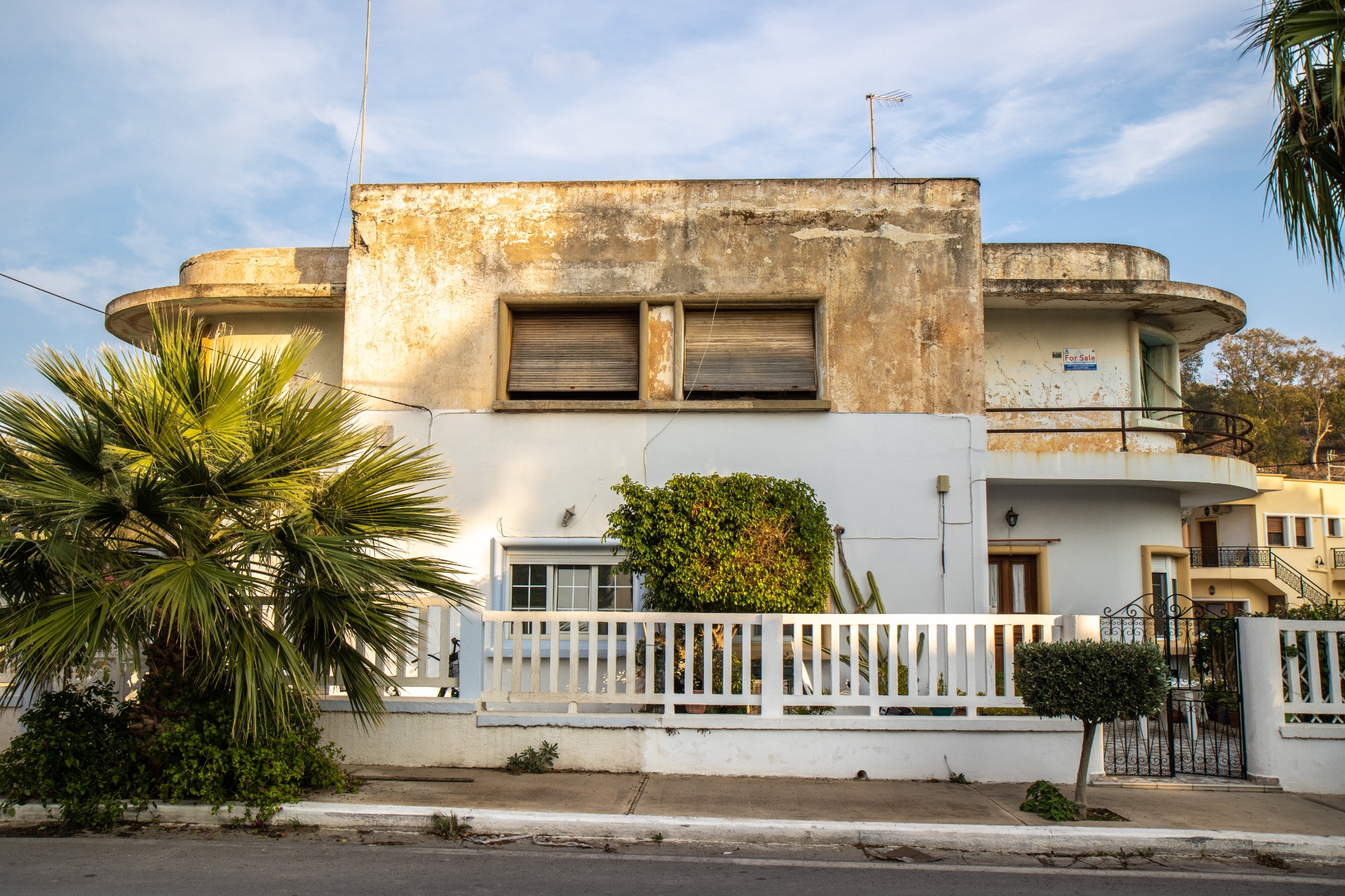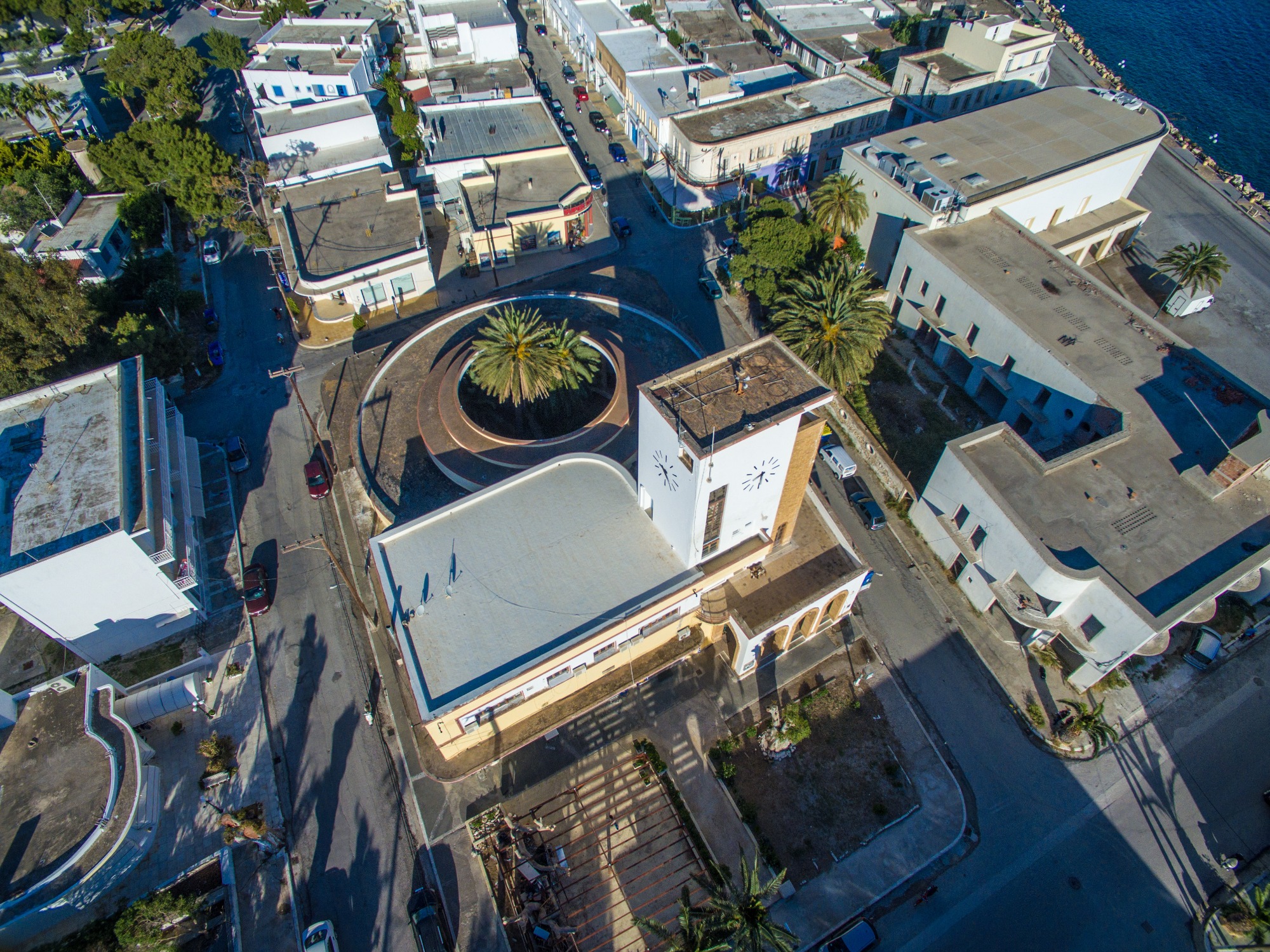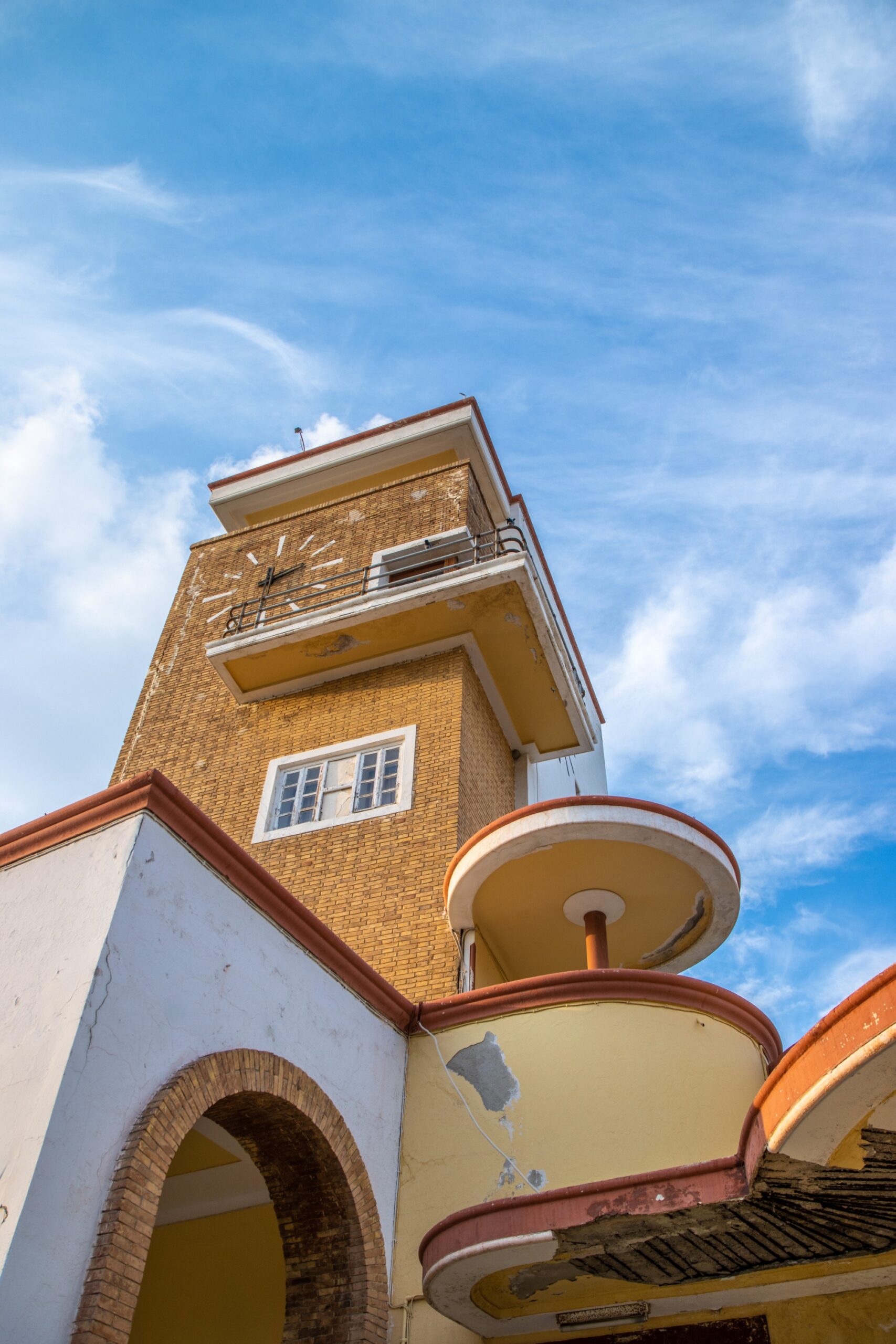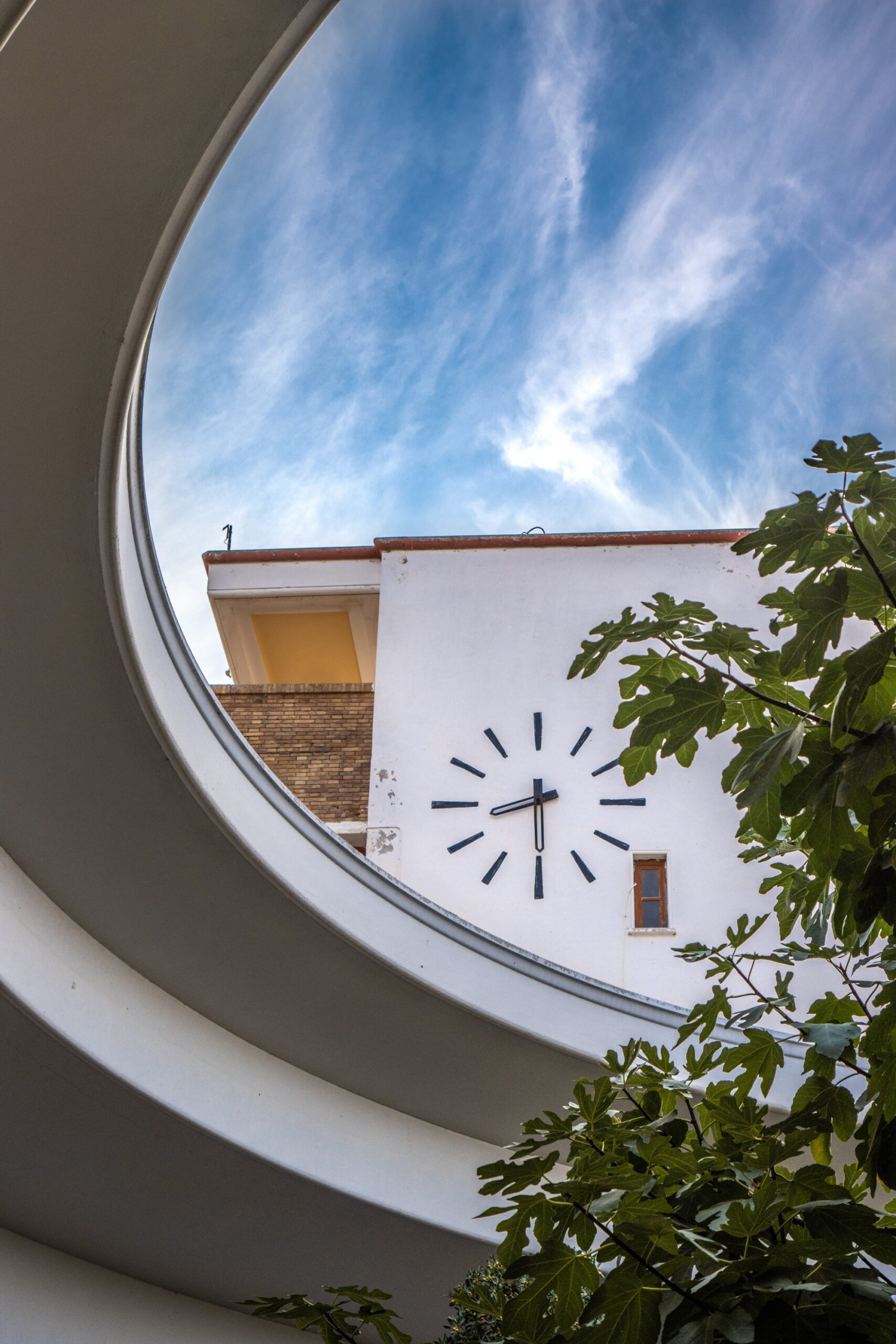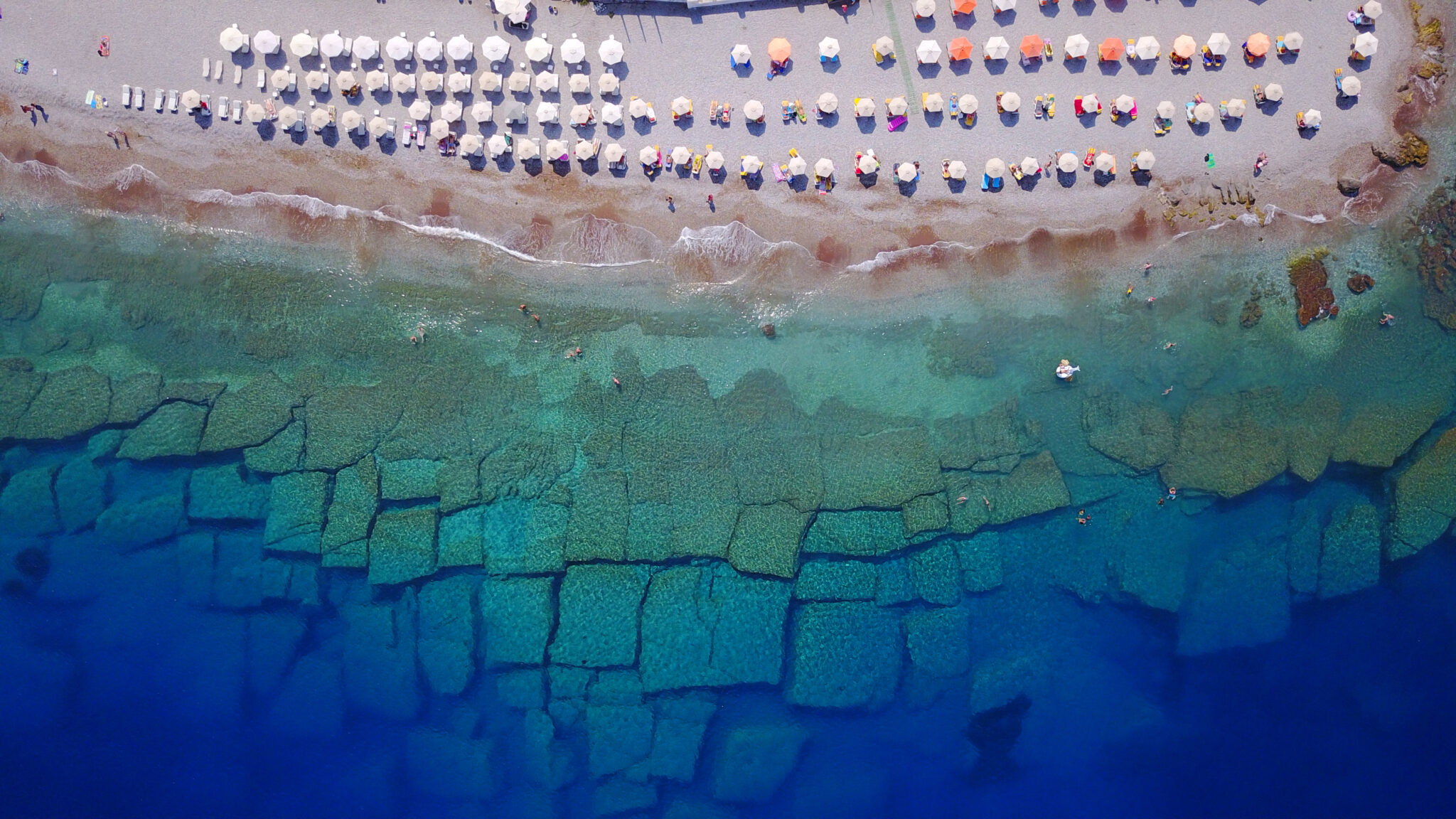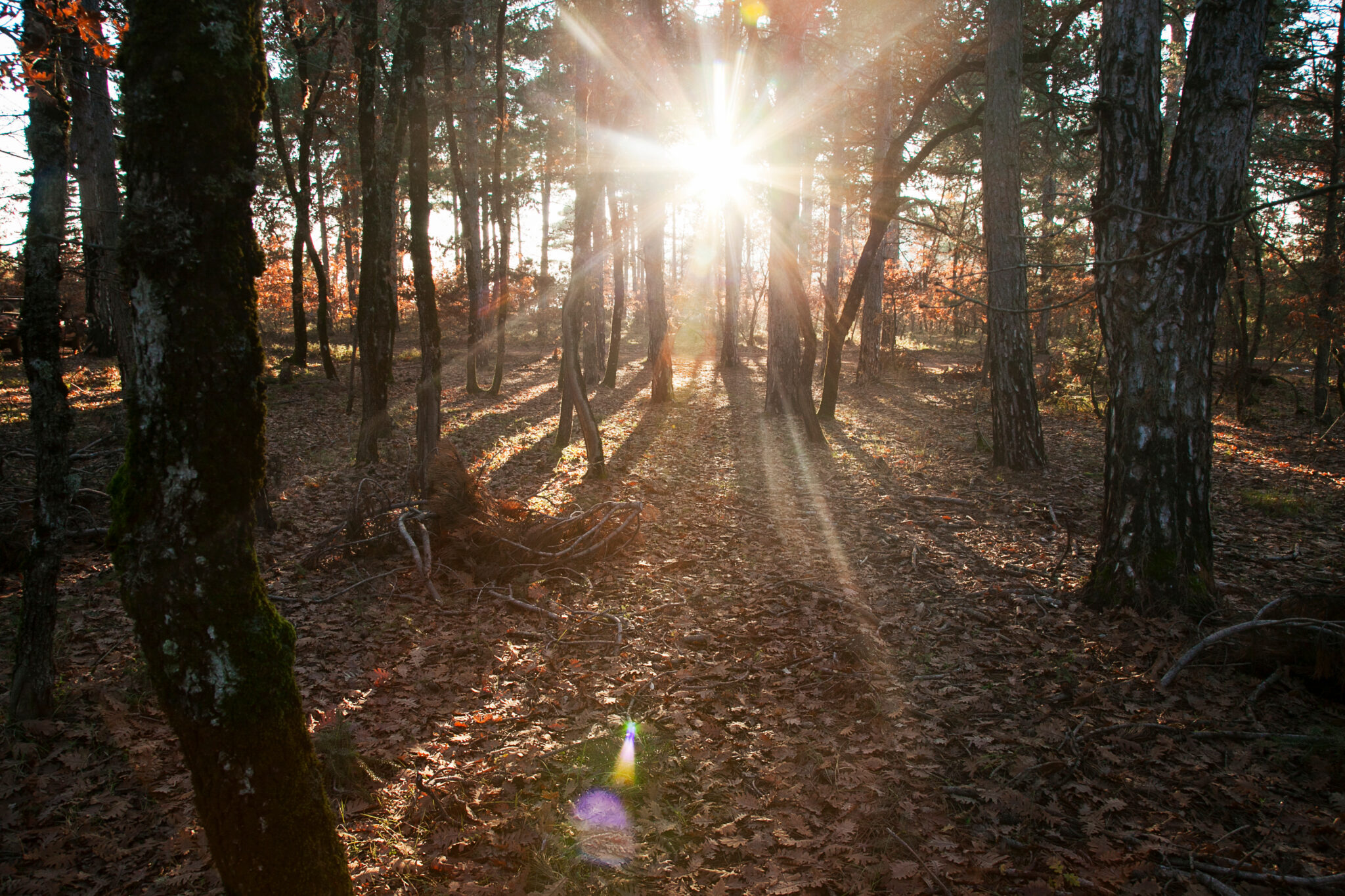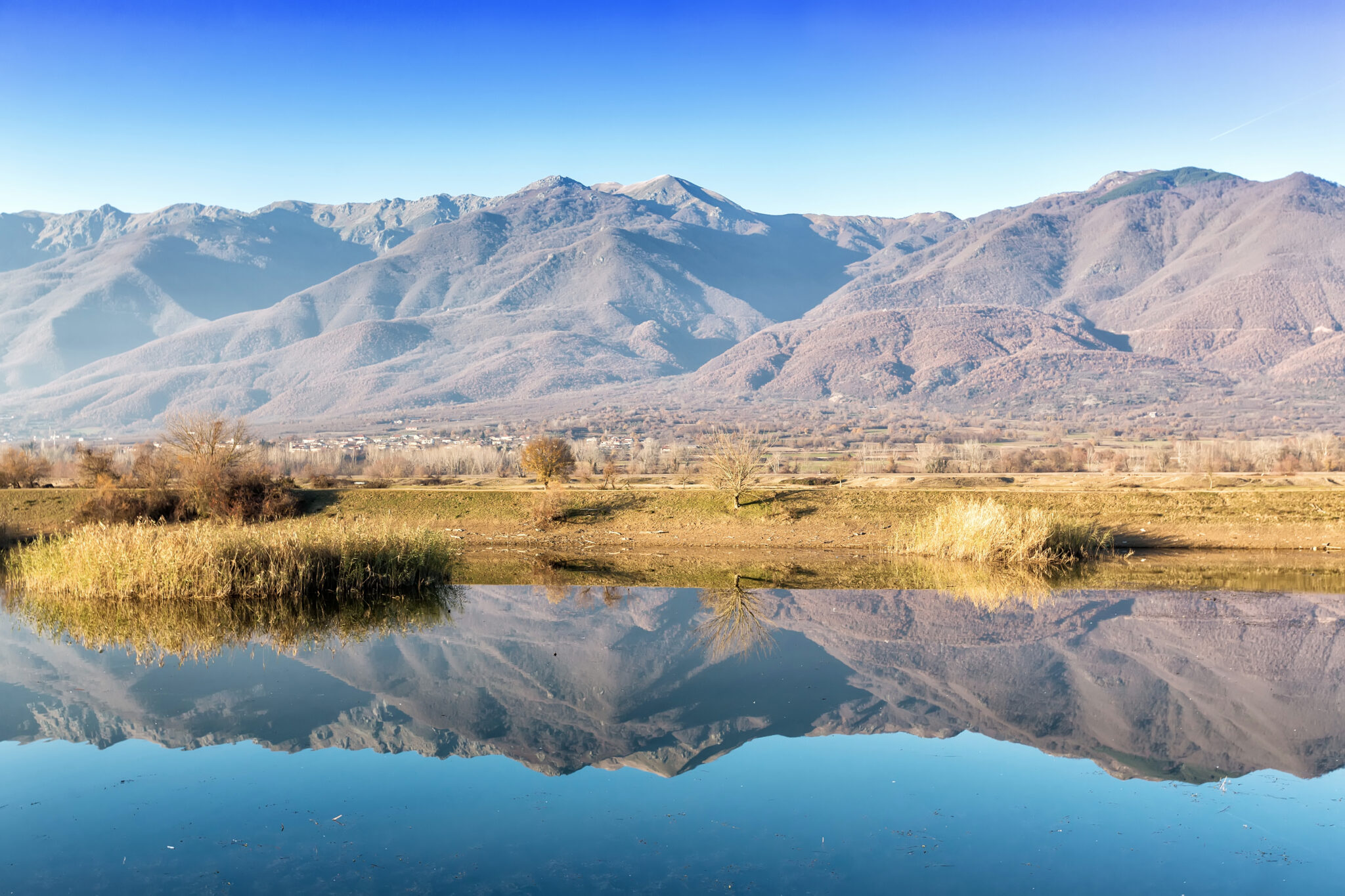Don’t be confused by the looks; we are not in Miami but in Lakki, on the island of Leros, where time has stopped still during the interwar Art Deco period. “The strange beauty of Greece’s weirdest town” according to the BBC brings to mind the paintings of Giorgio De Chirico and it is an inheritance left from the Italian rule of the Dodecanese islands The Italian town of Portolago was built from scratch on an area of drained marshes, defying the local architectural tradition.
Rather, it adopted a coherent minimalist style by mixing different trends – such as Art Deco, Bauhaus, Venetian, and Renaissance elements – into the buildings and infrastructure that remain impressive to this day.According to studies, Lakki seems to be the town with the most Art Deco buildings in one place, second only to Miami in this impressive feat.
The large roads and the imposing squares are surrounded by eye-catching public buildings like the market hall complex with its circular atrium and clock tower, the church, the school, the theatre, the hospital, the barracks, and also the Palazzinos, the Italian officers’ residences. All of them have simple but impressive façades, white walls, arcs and built-in windows. It is a mixture of Art Deco and Bauhaus that is known in architecture as Rationalism or Universalism.
Flashback
Mussolini’s interest in the Dodecanese is well-known, and especially in Leros which he considered key for his geopolitical plans for controlling the eastern Mediterranean during his Fascist rule (1922-1943).
The island’s location in the heart of the Aegean Sea allowed the control of the maritime waterways from the Dardanelles to the Middle East, while the natural harbour of Lakki – the largest in the eastern Mediterranean – was turned into a state-of-the-art airbase, making Leros Rome’s flagship in the area.
Right before the Second World War, much of the island was transformed into a large operational centre with facilities both above and below ground – headquarters, dormitories, tunnels for storing ammunition, fuel tanks, hangars for seaplanes, ship repair units, and also artillery batteries in strategic locations around the island.
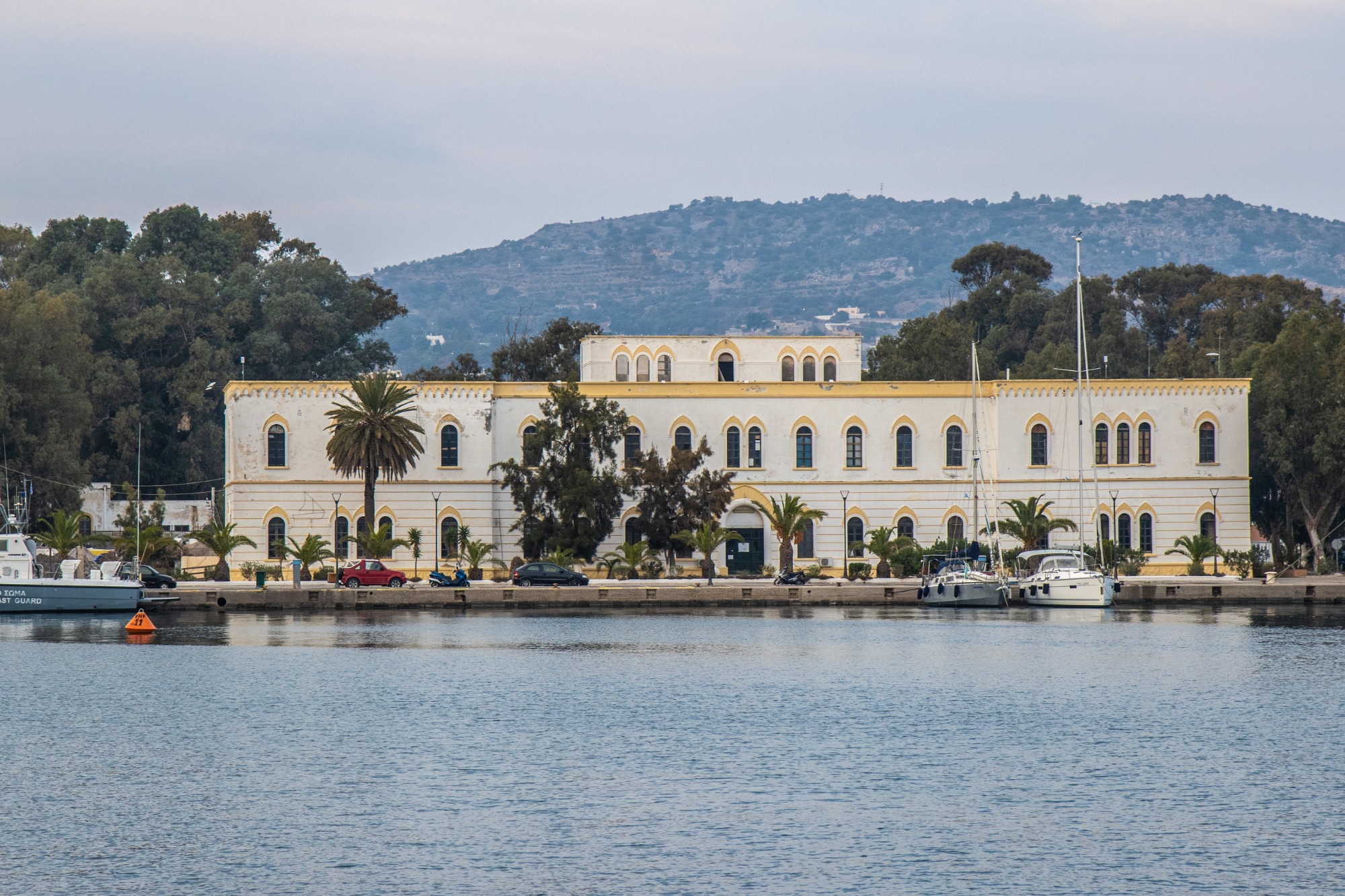
The main base of the Royal Italian Navy in the Dodecanese was built in the harbour of Lakki. The naval base incorporated many buildings and infrastructure including a landing area for seaplanes, while there were two destroyers, two small missile boats and four submarines stationed in the harbour. Apart from military infrastructure, the Italians implemented a wide plan to meet their needs on an administrative, educational, medical and touristic level, creating impressive infrastructures in the new larger area of Lakki, mainly for the settlement of officers and their families. Portolago had modern city planning and important public and private buildings, all in the Italian Rationalist style that remains impressive to this day.
The great Italian architects of the period, Rodolfo Petracco and Armando Bernabiti, were ordered by Mussolini to construct the new town in a large uninhabited marsh area. The architects were inspired by the paintings of Giorgio De Chirico, by the geometry of ancient temples, and by the optimistic modernism of Art Deco and as a result created one of the boldest and most unique architectural and city planning experiments of the 20th century.
However, the fact that the town was built on Mussolini’s orders and that its buildings housed the offices and activities of the Fascist party resulted in Lakki being denigrated, abandoned, and disregarded in the post-war era.
In recent years, however, the atmosphere seems to be changing as an increasing number realise the importance of the town as part of the world’s cultural heritage. Today, the cinema and theatre building, the hotel, and the market hall have all been classified as listed monuments, while the Municipality of Leros aims to get the whole town declared a UNESCO World Heritage site.
Some of the town’s buildings:
• Town Hall and Casa del Fascio (Fascist Party headquarters) (1935-1938 / Bernabiti).
• Market hall and clock tower (1934-1936/ Petracco).
• Primary school and kindergarten (1934-1936/Petracco).
• Casa del Balilla (it housed the offices of the Fascist Youth) (1933 / Bernabiti).
• Cinema and Theatre building (1936-1938/Bernabiti).
• Church of Saint Francis (now Agios Nikolaos) (1935-1939/ Bernabiti).
“Last night I dreamt I went to Lakki again”
Film director Ioanna Asmeniadou-Fokka from Thessaloniki came to Leros for the first time in 1995. For the past few years she has lived permanently in Lakki, “enchanted by its distinctness,” as she says. In 2018, with her award winning documentary “Portolago: Ghosts in the Aegean” she presented the unique history and architecture of Lakki to the world. Strongly nostalgic and melancholic, the documentary emphasised the latter day condition of the town’s buildings, many of which stand forgotten on the verge of collapse, trying to mobilise the institutions in charge to rescue, restore, and showcase the buildings.
We asked Ms Asmeniadou-Fokka to describe to us what Lakki, the Italians’ Portolago, is and what makes it unique and what she hopes for the town in which time seems to stand still. She said: “Last night, I dreamt I went to Lakki again. I started my film with this phrase, inspired by Alfred Hitchcock’s movie Rebecca based on the novel by Daphne Du Maurier, as I never forgot the first time I saw Lakki.
What do you expect to see when you arrive on an island of the Aegean? Certainly not Lakki; a town with wide streets and large squares, with considered city planning, unique architecture and holes from the Second World War still visible on some buildings. This town, once known as Portolago, was planned by great Italian architects in 1923, and the majority of it was built between 1930 and 1938, with construction stopping due to the war.
The planning and infrastructure were made with 30.000 residents in mind. So, today, with around 2.000 residents, and its bombed buildings, it’s a gorgeous ghost town, like a movie set. I would like to bring the town back to its old glory and for everyone to dream of being able to come, one day, to Lakki.”
Lakki on the map
Lakki is on the northeast of the bay of the same name and has 1.990 residents. If you arrive in Leros by boat from Piraeus, it will be the first image of the island you set eyes on and it will impress. If, on the other hand, you arrive by plane, the road from the airport will take you to the famed Portolago, where you will find scenic cafés and restaurants catering to all preferences.
Get to know Lakki beginning at the pier with a view of the blue sea. At the right end is Lakki’s primary school built in 1936. Next to it are the old Italian customs office and a bit further back is the orthodox church of Agios Nikolaos that stands in the place of the catholic church of Saint Francis.
At the centre of the seaside avenue Plotarhou Plessa you will find the cinema and theatre building, and next to it the hotel that is being renovated. Right behind them, you will see the market hall with the imposing atrium and the clock tower. At the other side of the pier, there is the minimalist monument for those who died when the Greek destroyer Vasilissa Olga was sunk in 1943 by German bombers instigating the “Battle of Leros”.
For more Info:
• leros.gr
• leroshotels.gr
• DEPOAPLR (Department of Culture of the Leros Municipality): Tel. 0030 2247022109
Read also
Leros: Guide for an unforgettable trip to this island of the Dodecanese
Agia Kioura of Leros, Greece: The church painted by the exiles



